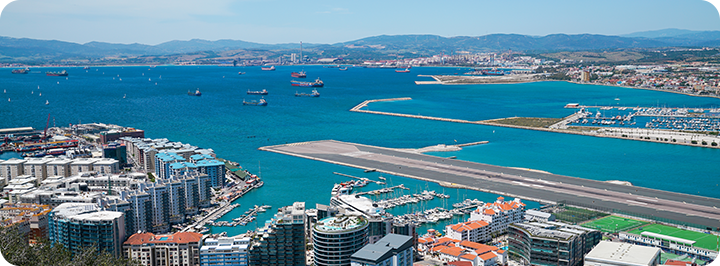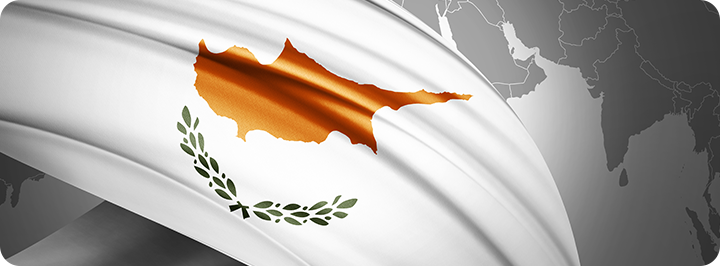Why Gibraltar is called an offshore jurisdiction?

Offshore jurisdiction is a country with a low tax rate or no taxes at all for businesses that do not carry any activity inside the country. The latter is the most important requirement, as companies that are considered as tax residents or local companies cannot use tax benefits. Offshore jurisdictions also provide friendly reporting solutions in order to simplify company management in relation to tax reporting and accounting.
Offshores are ideal locations for holding, investing, trading companies and trusts. Offshore jurisdictions guarantee asset protection. Gibraltar is a favourable country for IT company formation, especially startups whose top priority is to optimize taxes and cut costs on accounting. On top of that, Gibraltar allows to conduct such activities as online casinos and gambling, for which purposes companies should obtain relevant licenses with Gibraltar authorities.
It is important to note that Gibraltar is not a classical offshore jurisdiction. This country has a positive reputation in terms of cooperation with other countries on tax matters. As such, companies incorporated in Gibraltar do not face any difficulties with opening bank accounts and doing business with other companies. Traditionally, it is regarded that companies set up in classical offshores are opened to avoid paying taxes. This is not the case with Gibraltar. As a result, Gibraltar is a home to reputable IT, investment, trading and technological companies.
What are offshores used for?
Tax Optimization
In most offshore jurisdictions, such as Gibraltar, international business companies are exempt from income tax on global income, withholding tax, capital gains tax and inheritance tax.
Asset Protection
The asset protection enables the protection of assets held by a company. Asset protection encompasses the protection of business from illegal transfers, tax evasion, illegal hiding, etc. It is no doubt that this mechanism is important for individuals wishing to safeguard its wealth.
Privacy
Offshore jurisdictions allow to keep in confidence certain important details, such as names and addresses of directors and shareholders. It does not mean that they would not be required to disclose this information during KYC and AML procedures as well as in governmental bodies or state-owned institutions, such as banks. But these details will not be kept in public records, hence not accessible by everyone or entities without the obligation to keep it privately.
No Reporting Requirements
The fact that offshore jurisdictions allow the companies not to prepare tax and accounting reports is an important benefit for small and medium-sized companies. With simplifying management, companies may focus on business development instead of solving non-business related matters.
What are the benefits of offshore jurisdictions (in particular, Gibraltar)?
In order to benefit from the Gibraltar tax system, a company should be a non-resident company. It means that all business is carried outside of Gibraltar and no operation is held within the country.
Gibraltar provides the benefits that are accessible in other jurisdictions, including tax optimization, asset protection, privacy. Gibraltar is a self-governing British overseas territory. Its laws are harmonized with the UK. It has a stable legal and economic environment.
Interest income is exempt from tax liability in Gibraltar. The disposal of shares of a Gibraltar company by its foreign shareholder is not subject to tax in Gibraltar provided that it does not hold Gibraltar real estate, in which case a stamp duty applies. There are no capital gains in Gibraltar.
How offshores differ from tax free zones?
Offshore jurisdiction is located within a boundary of one country, usually in distant countries and islands. Tax free zones are also called “onshores” as these can be designated territories or areas in one country. These zones are created specifically to attract foreign capital by tax benefits, visa opportunities and opportunities to maintain offices with access to port, airports and even digital technologies.
Of course, offshores and onshores have similarities as they are both aimed to gain tax preferences. But the main difference is that companies registered in free tax zones are required to actually operate in these areas, while offshores, on the contrary, should operate outside of such countries.
In particular, Gibraltar is an ideal country for those businesses that do not require to operate in Gibraltar and wish to trade in other countries. The number of free trade zones are limited as of these days. While Dubai remains to be the largest free zone, there are free trade zones in China, India and a few other countries.
Ecompany.ltd specializes in company formation in several countries across the globe, including Gibraltar. Our key benefit is that we provide business solutions for online businesses: from company formation to company management, from legal to translation services and other services. Please feel free to contact us.




